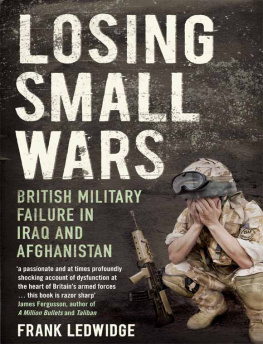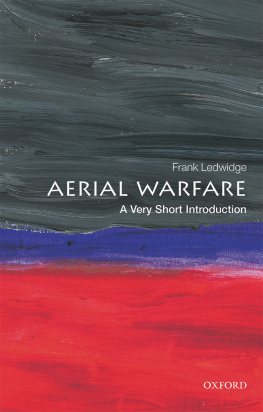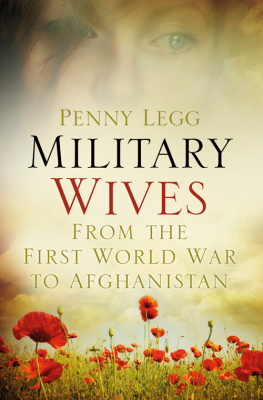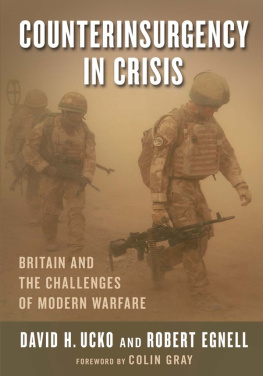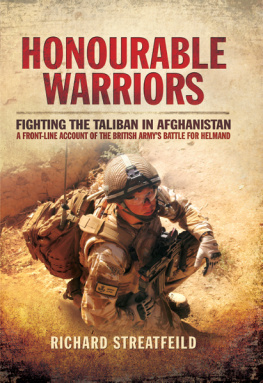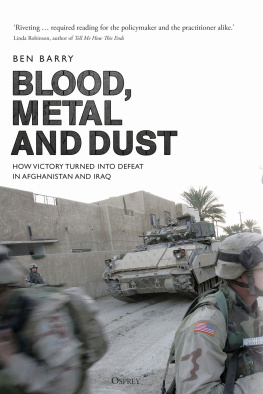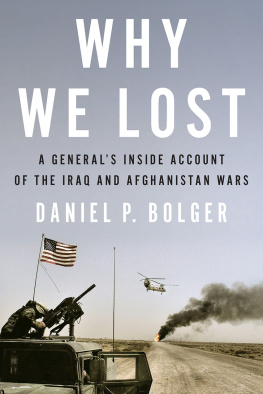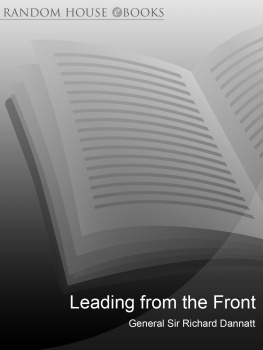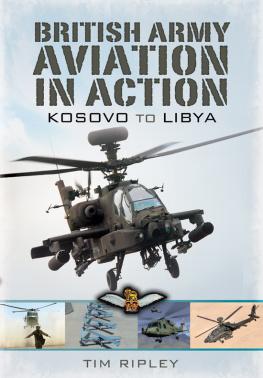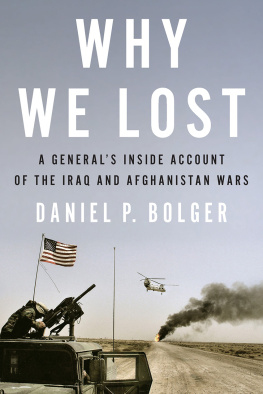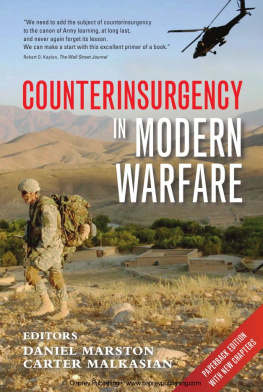


Copyright 2011 Frank Ledwidge
The right of Frank Ledwidge to be identified as author of this work has been asserted by him in accordance with the Copyright, Designs and Patents Act 1988.
All rights reserved. This book may not be reproduced in whole or in part, in any form (beyond that copying permitted by Sections 107 and 108 of the U.S. Copyright Law and except by reviewers for the public press) without written permission from the publishers.
For information about this and other Yale University Press publications, please contact:
U.S. Office:
Europe Office:
Set in Minion by IDSUK (DataConnection) Ltd
Printed in Great Britain by TJ International Ltd, Padstow, Cornwall
Library of Congress Cataloging-in-Publication Data
Ledwidge, Frank.
Losing small wars : British military failure in Iraq and Afghanistan / Frank Ledwidge.
p. cm.
Includes bibliographical references and index.
ISBN 978-0-300-16671-2 (cl : alk. paper)
1. Iraq War, 2003Participation, British. 2. Iraq War, 2003CampaignsIraqBasrah. 3. Afghan War, 2001Participation, British. 4. Afghan War, 2001CampaignsAfghanistanHelmand River Valley. 5. Strategic cultureGreat Britain. 6. Great BritainArmed ForcesManagement. 7. Great BritainMilitary policy. I. Title.
DS79.765.G7L44 2011
956.7044'3341dc22
2011012024
A catalogue record for this book is available from the British Library.
10 9 8 7 6 5 4 3 2 1
2015 2014 2013 2012 2011
Contents
Acknowledgements
I have spoken with, and taken up the time of, many dozens of people in the course of researching and writing this book. It is always difficult to do justice to everyone, but here goes.
Above all, many serving and retired veterans of Iraq and Afghanistan ranging from private soldiers to three-star generals (or civilian equivalents) have given me their time to discuss what to them are immediate and personally vital issues. I am particularly grateful to my former comrades in the units with which I have served. They know who they are. Similarly, I have had the privilege of hearing the views of an equally wide range of serving diplomats, civil servants and police officers. Between them, these soldiers, sailors, airmen and civilians have hundreds of years' service in conflict zones. It has been a pleasure and a great privilege to have had the benefit of their individual and accumulated wisdom.
My Afghan friends still resident in the country would, I think, prefer not to be named for now, but they have been invaluable in providing the Afghan perspective. Bob Churcher was kind enough to read and comment on several drafts. His rare combination of many years as a military officer, followed by a decade or so of assisting in reconstruction in Afghanistan, put me right on a whole raft of matters; his help was invaluable. Similarly, Brigadier Richard Iron has patiently fielded many questions and provided wise guidance. David Loyn has helped and encouraged me in writing this book from the start.
Those other incredibly brave journalists Jean Mackenzie and Stephen Grey have spent many hours outlining the view from outside the wire which is to say the reality of life in Helmand. Bijan Omrani, an expert on the history of the country, has kindly given me the benefit of his deep scholarship on Afghanistan and has put British involvement there firmly in context. To provide a robust critique of the civilian aid effort, one could ask for no more informed or experienced a view than that of Dan Jarman.
Martin Bayly, an emerging scholar, and Colonel David Benest, an established one, have given me the benefit of their research into and knowledge of British counterinsurgency history; David Betz and David Whetham, wise supervisors both at King's College, London, have patiently listened to my often unformed views and corrected them, as have the dean Dr Joel Hayward, lecturers and cadets at the RAF College Cranwell. Professor Anthony King of Exeter has provided remarkable encouragement and a fascinating, informed conceptual angle.
Other friends and colleagues who have given of their time and patience include, but are not limited to, Cynthia Alkon, Dr Sigurd Berven, Toby Bonthrone, Professor Theo Farrell, James Fergusson, Dr John Gearson, Lara Griffith, Richard Jermy, Commodore Steven Jermy, Dr Robert Johnson, Mary Kaldor, Matthew Kypta, Walter Ladwig, Major General Andrew Mackay, Gabrielle Rifkind, David Ucko, Harry Verhoeven, Stephen Weiss, Colonel John Wilson.
Of these friends and colleagues I would like to single out Dr Michael Finn and Alex Donnelly, who have endured many days of discussion of the dilemmas thrown up in writing a book such as this.
Some (or all!) of these impressive individuals may not agree with my conclusions; whether they do or not, I trust they will accept that we share a dedication to ensuring that the mistakes of the past inform but do not infect the future.
The librarians of the Joint Command and Staff College Shrivenham and RAF College Cranwell have been particularly kind and efficient. I can summarize their assistance by stating that they are at the top of their profession.
Thanks also to Phoebe Clapham, my editor at Yale, who has patiently fielded my endless questions as to structure and content. One could ask for no better agent than the ever patient and courteous Andrew Lownie, without whom this book would not have seen the light of day.
Special thanks are due to my wife, Nevi, and my son, James, who have had to endure my immersion in recent military history. I hope to be able to make it up to them.
Introduction
Now that it was dark we were led out onto the tarmac, formed two files and trooped into the hold of the C-130 Hercules, its engines already running. We were directed, as always, to sit along the sides of the aircraft. One of the last to board, I took my place towards the back. The RAF loadmaster, like some camouflaged flight attendant, went around offering us all foam ear defenders for the flight to offset the constant roar of the engines. Ready now, he stood just opposite where I was and pressed a button for the great rear ramp to lift. As it slid into place, the aircraft began to move. The loadmaster turned the already dim interior lights off, leaving us in complete darkness. As we took off steeply into the Afghan night, I can safely say I have never felt more at home in my life. This was where I wanted to be, on my way to serve as a civilian justice adviser alongside my comrades in the British armed forces, in what I believed to be a just and winnable war.
The next day, after an exhilarating white-knuckle ride, low and fast in a Chinook over the Helmand valley, I arrived at the fort in Helmand's capital Lashkar Gah which housed the Provincial Reconstruction Team, or PRT, and was swept up into the urgency and immediacy of the war in southern Afghanistan. The months I spent in Helmand were the most interesting of my life, as well as the most revealing. I had arrived there a believer in the mission.
This was not like the war I had fought in Iraq as a military officer four years before. I had arrived in Basra with the mission of finding the much-touted weapons of mass destruction (WMD). It did not take long to realize that the dozens of missions we were running all over southern Iraq were really nothing more than an occasionally dangerous hunt for moonbeams, and that the British mission as a whole was losing its way. The war in Helmand was different, I thought. It was a struggle against a well-defined enemy; and not only our enemy but the enemy of the Afghan people. While I had few illusions about the role I could play typically it takes decades for the results of justice development to become apparent I was confident when I arrived that the British military forces had the measure of the enemy.
Next page
